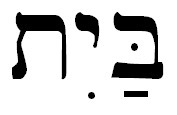by Pastor Ed Visser
We were traveling through the Judean desert toward Jerusalem when we saw it. Coming over one of the many hills, we spotted this pastoral scene, of which I quickly snapped a picture. It’s a typical scene in the land, a bedouin shepherd leading his sheep and goats to food. And yet, the scene before us was atypical of the images we hold in our mind when we read passages like Psalm 23.
The Lord is my shepherd,
I shall not be in want.
He makes me lay down in
green pastures,
he leads me beside quiet waters,
he restores my soul.
He guides me in
paths of righteousness
for his name’s sake.
Admit it! You probably don’t envision “green pastures” that look like sand dunes (where’s the green?). Or thousands of “paths” (the horizontal stripes you can barely see) that crisscross the hills (which ones are the “right paths”?). Whatever your Sunday School pictures showed you about Psalm 23, this is the image you should have firmly in your mind! And when you get the right image, you “get” the Psalm.
After all, what’s more like real life? God plopping you down in a field of lush grass, giving you everything you need for your lifetime? Or God leading you, day-by-day, to little tufts of grass, just enough to get you through the day but demanding that you trust him for the next day (“give us this day our daily bread”)?
What’s more like real life? God showing you a nicely paved path and reminding you not to stray off it? Or God leading you, in the midst of a maze of different paths you could choose, down the path that will allow you to live rightly and find sustenance for life (rather than the edge of a cliff)?
You will notice that the shepherd (top, far left) is out in front of his flock — leading them, not driving them like cattle. God wants our relationship with Him to be one of hearing his voice & following, rather than having to be “driven” to hear and obey. True sheep, as Jesus notes in John 10, hear his voice and follow.
But sometimes we don’t follow; we go our own way. What then? Well, Jesus reminds us that a good shepherd will go out to seek and save his lost sheep, for they are precious to him. But there are limits; there will be a time when sheep & goats will be separated, and different fate will await them both. Why did Jesus differentiate between these 2 types of flocks? After all, in Israel you generally see sheep & goats grazing together. But look closely at this picture. The group of animals in a neat circle nearest the shepherd are sheep; the rest scattered on the hillside are goats. Apparently this is common, for while sheep are good followers, goats often have a mind of their own. Goats have an independent streak which causes them to stray. Do we?




